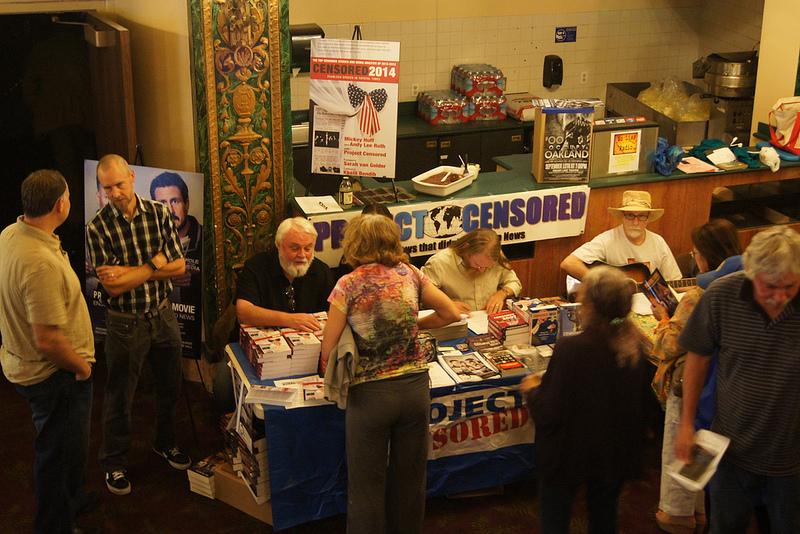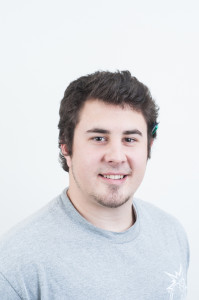What started as a simple media research program in 1976 at Sonoma State University is now one of the most renowned and stalwart media watchdog groups in the entire United States, with a name that is becoming increasingly known around the world – and that moniker is known as Project Censored.
Project Censored is a media research program with a focus on student development of media literacy and critical thinking skills. It connects hundreds of faculty members and students at colleges and universities across the United States in the collective effort of identifying and researching each year’s top censored and under reported news stories in the media.
The current director of the project is Diablo Valley College’s Mickey Huff. He is a professor of social science and history as well as the co-chair of the history department at DVC.
Outside of DVC, Huff is the co-host with former Project Censored director Dr. Peter Phillips of the Project Censored Show on KPFA 94.1 Pacifica Radio on Friday mornings at 8 a.m. He is also on the steering committee of Banned Books and has been interviewed by numerous independent and major media outlets and speaks regularly at public venues across the U.S. on issues of censorship, propaganda, media literacy, and contemporary historiography, with a special focus on untold histories and suppressed historical narratives.
Huff’s work has appeared in numerous academic journals and books and has been published by many online news and commentary sites. He has been a co-editor, editor and contributor to the award-winning Censored annual book series – the most recent being Censored 2014: Fearless Speech in Fateful Times.
In tandem with the annual book, Project Censored was proud to announce the release of the new film “Project Censored the Movie: Ending The Reign of Junkfood News”, of which, debuted in April 2013 and was directed by Christopher Oscar and Doug Hecker.
The film received numerous awards, including winner of most viewed film at the Sonoma International Film Festival, and was nominated for the Prestigious International Filmmaker award at Madrid International Film Festival, the Best Director and Editing of a Documentary Feature at Madrid International Film Festival and winner of Best Director of a Documentary Feature at Madrid International Film Festival all in 2013.
“Really what we are trying to do is spread the word about the great job that Project Censored is doing and help people to become media literate,” Hecker said.
As Oscar quoted in the film, “There are three things that cannot be long hidden, the sun, the moon, and the truth.”
“We created this film with an intention to inspire people to take action,” Oscar said.
One of the more prominent outreach activities that Project Censored has fostered was the screening of the movie which debuted on Sept. 11 at the Grand Lake Theater in Oakland. The movie was the main attraction at the 9/11 Truth Film Festival, drawing a crowd of all shapes and sizes to come and increase media awareness.
“It’s great that Allen Michaan, the owner of the theater, opens it up for political and social justice movements of all sorts, including those that may not be popular. It’s nice to be here, and to show our film,” Huff said. “We support the open dialogue, debate and free speech that is fostered by these kind of gatherings.”
Working with associate director Dr. Andy Lee Roth, Huff has strived to extend the Project’s educational reach beyond Sonoma State University, expanding the Campus Affiliates Program launched in 2009, according to the Project Censored website.
“I think the movie allows us to reach a segment of people who wouldn’t necessarily read the book, or be attracted by the book in the first place,” Dr. Andy Lee Roth, co-author of the accompanying book, said. “But it gets the message out in a different medium, and that’s good. The more people understand the importance of truly independent journalism and a truly free press, for democracy, the better our future looks.”
Roth started to work on the project in 2007, and has maintained a lot of those student friendships gained by work within the project to this day.
“The goal of the project has always been to reach as many citizens and community members across the United States as we can,” Roth said.
Being caught in between junk food news and the censored or filtered stories of the media seems to be the main dilemma. Through the reality check of a news thoroughfare that is Project Censored, critically thinking about the information that is presented to the public is becoming more the norm.
The ability to identify concepts such as “modern media censorship” as “subtle yet constant and sophisticated manipulations of reality” and “junk food news” is just a stepping stone to the true goal which will be to someday achieve a system where all people will be able to receive the honest, important and pertinent information they deserve, no matter what their circumstance – free of censorship.
Since its founding, Project Censored has trained over 2,500 students in media literacy and has received numerous honors, including two Firecracker Alternative Book Awards, the 2008 PEN Oakland National Literary Censorship Award, and in 2013 became part of the National Coalition Against Censorship.
With the film now in its arsenal, a whole new area of media literacy can be spread and with a little help, everyone can gain insight about the censorship in mainstream media.






































































